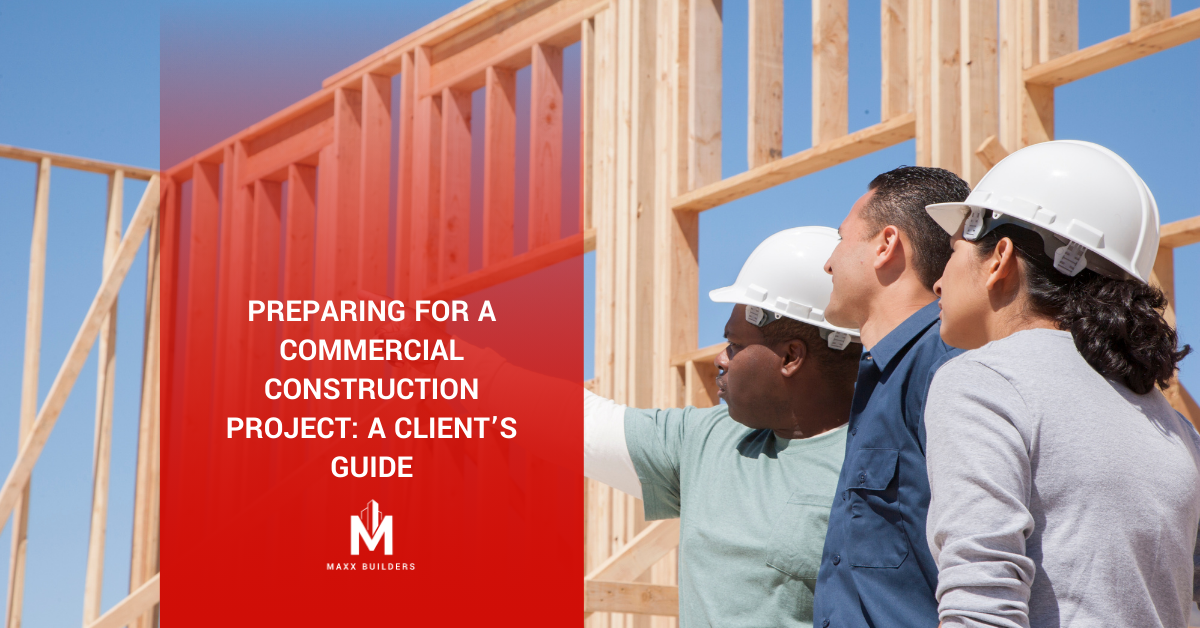Introduction
Embarking on a commercial construction project is a significant undertaking that requires meticulous planning and preparation. Whether you’re a first-time developer or a seasoned business owner expanding your operations, understanding how to prepare for a construction project is crucial. This comprehensive guide provides step-by-step instructions and addresses your most important questions and concerns, ensuring that you’re fully prepared for this exciting journey.
Understanding the Scope of Your Project
Defining Your Vision
Before diving into the construction process, it’s essential to have a clear vision of what you want to achieve. This involves considering the purpose of the building, its functionality, and the desired aesthetics.
- Functionality: Consider how the space will be used and what specific features it needs to serve its purpose effectively.
- Aesthetics: Envision the architectural style and design elements that reflect your brand and meet your aesthetic preferences.
Assessing Your Needs
- Space Requirements: Determine how much space you need, including future expansion possibilities.
- Location Considerations: Location is crucial in terms of accessibility, visibility, and compliance with zoning laws.
Assembling Your Dream Team
Choosing the Right Professionals
A successful commercial construction project relies heavily on the expertise of the professionals you choose to work with.
- Hiring an Architect: Look for an architect with experience in commercial projects similar to yours. They will be instrumental in bringing your vision to life.
- Selecting a Contractor: Your contractor will be responsible for the actual construction. Choose someone reputable, with the necessary skills and resources.
- Consulting Engineers: Depending on your project, you might need structural, mechanical, or electrical engineers.
- Legal and Financial Advisors: These professionals will help you navigate contracts, permits, and budgeting.
Building Effective Communication
- Regular Meetings: Schedule routine meetings with your team to ensure everyone is on the same page.
- Transparent Communication: Establish clear communication channels for updates and decision-making.
Finalizing Your Budget
Establishing a Financial Framework
A realistic budget is the backbone of your construction project.
- Detailed Budgeting: Include all potential costs, such as materials, labor, permits, and contingencies.
- Securing Funding: Ensure your finances are in order, including loans or investments needed for the project.
Navigating Legal Requirements
Understanding and Securing Permits
- Research Required Permits: Different projects have different permit requirements. Make sure you understand what’s needed for your specific project.
- Application Process: Work with your team to gather the necessary documentation and submit permit applications in a timely manner.
Designing Your Project
Collaborating with Your Architect
- Initial Concepts: Work closely with your architect to turn your vision into an actionable plan.
- Design Revisions: Be open to suggestions and revisions to ensure the design is both practical and aligned with your vision.
Preparing the Construction Site
Site Analysis and Preparation
- Site Analysis: Conduct a thorough analysis of the site, including soil testing and surveying.
- Preparing the Site: This might involve clearing, excavation, and grading to prepare for construction.
Managing Construction Risks
Implementing a Risk Management Plan
- Identifying Potential Risks: Consider factors like weather, material availability, or regulatory changes that could impact
your project.
- Developing Contingency Plans: Have strategies in place for potential risks to minimize disruptions.
Overseeing the Construction Process
Staying Involved and Informed
- Regular Site Visits: Make frequent visits to the construction site to monitor progress and ensure compliance with your vision.
- Quality Control: Implement quality control measures to ensure that construction meets your standards and specifications.
Planning for Post-Construction
Transitioning to Building Operation
- Final Inspections: Ensure that all aspects of the project meet your expectations and comply with local regulations.
- Building Handover: Familiarize yourself with the building’s systems and ensure you have all necessary documentation.
Frequently Asked Questions
Addressing Common Concerns
- How long does a commercial construction project take? The timeline varies based on the project’s scope, size, and complexity.
- What are the common challenges in commercial construction? Challenges include budget management, adhering to timelines, and dealing with unforeseen site conditions.
Conclusion
Preparing for a commercial construction project is a detailed and complex process, but with the right planning and team, it can be a rewarding and successful endeavor. By following this guide, you’ll be well-equipped to tackle each stage of your construction project with confidence.
Ready to start your commercial construction project? Contact Maxx Builders for expert guidance and support every step of the way.




